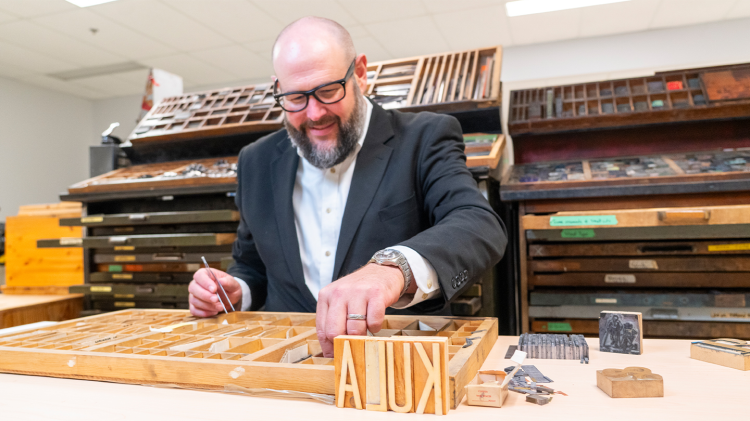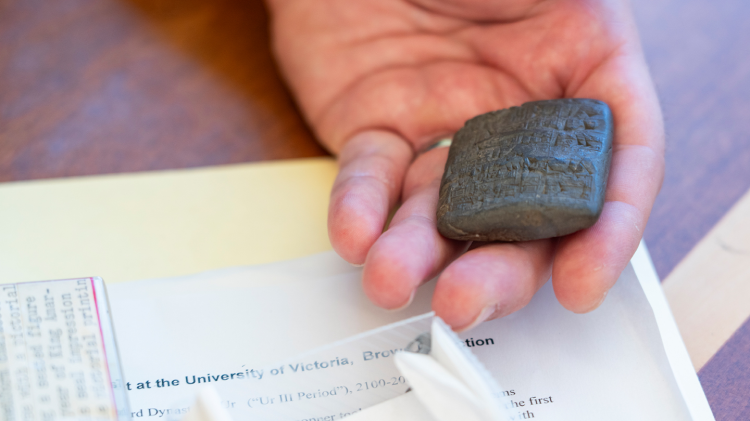In a time shaped by artificial intelligence (AI), misinformation and complex global challenges, trusted sources of knowledge have never been more vital. Kula: Library Futures Academy advances the academic library's role as a catalyst for research, innovation and interdisciplinary collaboration, building intellectual community ready to tackle the world's most pressing issues. No longer simply repositories of the products of research, today's academic libraries have evolved to become a catalyst for innovation, partnership creation and creativity. They are a place for conversations, debates and sense-making in a world of polarized and entrenched views.
"The ever-increasing pace of technological development continues to have profound impact, both positive and negative, on the health and well-being of humanity and our environment. While there are elements of this impact that are discipline specific, much is common to all and hard-won insight in one domain may be of great value to other domains. The location of university libraries at the intersection of disciplines ideally situates them to facilitate collaboration and engagement between and across domains, including internationally, creating new opportunities to address global issues and assimilate new technologies to enhance scholarly processes."
Jonathan Bengtson, UVic university librarian

Matt Huculak, director, Kula: Library Futures Academy, in UVic Libraries' Farallon Book Arts Lab. Credit: UVic Photo Services
The Kula Academy will leverage the role libraries play in relationship-based knowledge creation, using creative scholarship and imaginative thinking to have a positive impact on people and the planet by exploring broadly the foundational, historical and theoretical intersections of technology and knowledge production in human culture and society.
Donors support evolving role of libraries and archives
In fall 2024, Matt Huculak assumed the position of Kula's inaugural director. He first joined UVic Libraries in 2013 as a post-doctoral researcher, was appointed as a digital scholarship librarian in 2017, and in 2021 became the head, advanced research services. Recently he was given a 2024 Mover and Shaker Award by Library Journal for his contributions to Holocaust research.
Under Huculak's tutelage, Kula will serve as an incubator of innovative ideas and a test bed for new methods and practices in the conduct of collaborative research and learning, and will celebrate the joy and power of working locally, regionally, nationally and internationally with librarians, faculty, researchers, students, staff, community and industry thought leaders.
As a research arm of UVic Libraries, Kula mobilizes library-based collaborative, trans- and inter-disciplinary, creative, impactful research and engagement on issues of global concern, while fostering a supportive and vibrant intellectual community.
The opportunity to expand the university libraries' research and engagement activities related to the intersection of knowledge and technology by establishing an institute of advanced studies is thanks to the vision and support of donors Brian Gaines and Mildred Shaw. Their current annual funding and future planned gift to UVic Libraries will be one of the most significant and visionary donations to the University of Victoria in its history and builds upon and expands activities related to their initial support of the library's peer-reviewed journal, KULA: knowledge creation, dissemination, and preservation studies.
Shaw and Gaines are retired university professors originally from England. Gaines, a professor emeritus from the University of Calgary, former Killam professor and associate vice-president research, was involved in developing the field of knowledge acquisition and stochastic computing. Shaw was a computer scientist and psychologist who held the first software engineering chair in Canada at the University of Calgary. The couple moved to Vancouver Island when they retired in 1999.
"One of the highlights [for me] last year was meeting for the first time Brian Gaines and Mildred Shaw whose generosity have made the Kula Academy possible. Brian and Mildred have dedicated their lives to exploring the role of technology in the information sciences and in education. It was invigorating to speak to them about knowledge creation, preservation and dissemination. Brian is a true polymath and maker who understands the vital societal role libraries and archives play in democratic societies by providing trustworthy resources to our communities. We are living in a time in which our efforts are more important than ever, and I left their home with a firm sense that we are supported by people who truly understand our work."
Matt Huculak, director, Kula: Library Futures Academy

Matt Huculak, director, Kula: Library Futures Academy, in UVic Libraries Special Collections and University Archives, with a cuneiform tablet dating back to 2,046 BCE. Credit: UVic Photo Services
Contributions to the community
The Kula: Library Futures Academy integrates a variety of UVic Libraries' programs, such as: KULA: knowledge creation, dissemination and preservation studies, an international, peer-reviewed, open-access journal; the Kula Dialogue Series, exploring pressing issues of the day; the Conflict Aftermath Digital Archives Project, practice-informed research based on photographic archival initiatives; the Farallon Book Arts Lab; the Historic Computing Lab; and Libraries Enabling New Scholarship (LENS@UVicLib), an emerging initiative that reimagines UVic Libraries' digital activities for future research.
Kula builds on the research strengths of the university related to issues of global concern where the library can enhance or accelerate knowledge creation and mobilization through collaborative, creative engagement. In so doing, the Kula Academy is an extension of UVic Libraries' open, engaged, enduring strategic directions, and aligns with Distinctly UVic, the University of Victoria strategic plan.
Informed by a range of university plans, with particular attention to research areas of global concern, Kula will seek partnerships across all the faculties, divisions, services and research centres at the University of Victoria. It will also strive to work with CIFAL Victoria, and various local and municipal initiatives in the Greater Victoria area.
Internationally, it will establish partnerships with a diverse set of academic and research libraries, as well as institutions and regions that are part of UVic's global engagement. This summer, Kula announced its first international Kula visiting fellowship with Lambert Heller, head of the Open Science Lab at the Leibniz Information Centre for Science and Technology in Germany.
Kula also recently announced seed funding to support initiatives that advance UVic Libraries' strategic priorities with diverse projects such as geospatial data workshops, AI-powered discovery in archives, rare book cataloguing, Asian woodblock printing and book binding workshops, exploring generative AI in research, activating the art collections, tracing South Asian migration in historical archives, and more.
"Kula positions UVic as a global leader in reimagining the role of libraries in today's rapidly changing world. It reflects UVic's deep belief in the power of ideas, collaboration and inclusive knowledge to shape a better future. By bringing together diverse communities, disciplines and technologies, Kula creates space for bold thinking, ethical research and meaningful public impact advancing UVic's role as a place where innovation and imagination thrive in service of people and the planet."
Elizabeth Croft, UVic vice-president academic and provost
The Kula: Library Futures Academy formally launches with a public event Sept. 15-16 featuring a series of moderated panel discussions. Speakers include University of Oxford Bodley's Librarian Richard Ovenden; Librarian and Archivist of Canada Leslie Weir; authors Lawrence Hill, Richard Van Camp and Esi Edugyan; UVic Chancellor Emerita Shelagh Rogers; filmmaker Atom Egoyan; and many others. Tickets are available online.









